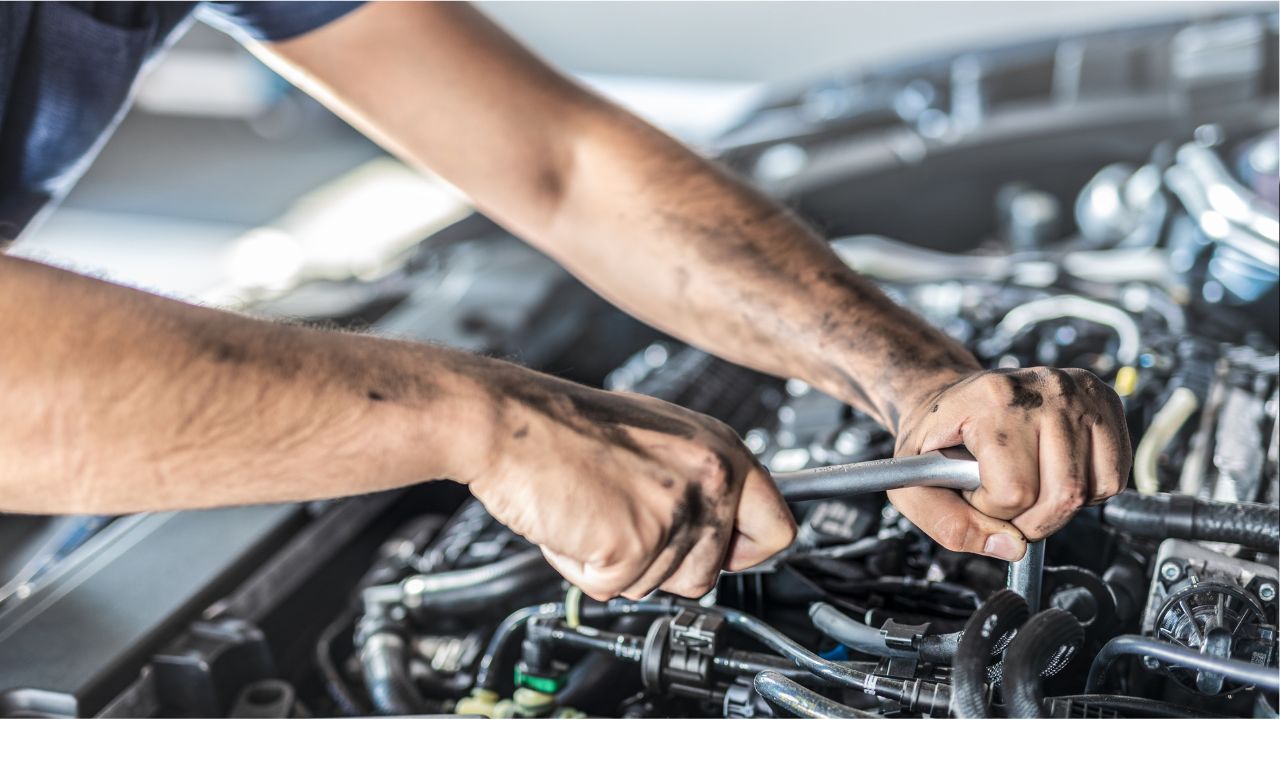When choosing a career or side hustle in the automotive industry, two popular options often come up: car detailing and car mechanics. Both have pros and cons, but the big question is, which makes more money? In this article, we'll break down the financial aspects of both professions. Let's dive in.
Car Detailing

Car detailing involves meticulous cleaning, polishing, and protecting a vehicle's interior and exterior. Professional detailing can range from exterior detailing, including ceramic coatings, to regular engine detailing and steam cleaning. For anyone in the detailing business, the challenge is to offer premium services that are a cut above the regular car wash.
Initial Investment
Starting a car detailing business often requires a moderate initial investment compared to many other companies. When I first considered this field, I spent around $2,000 to $5,000 for the essential equipment and supplies. This includes professional-grade equipment like a power washer, vacuums, brushes, cloths, steam cleaning equipment, and cleaning solutions. The goal is to buy quality tools that can last long and help you provide top-tier services.
One of the beauties of detailing is that the startup costs are relatively low, which allows newcomers to enter the business without a significant financial burden. The most crucial decision will be whether you invest in a mobile setup or a physical location.
Operating Costs
Once the business is up and running, operating costs are manageable but require attention. You'll need to budget for recurring purchases like cleaning supplies, water, electricity (if working from a fixed location), and transportation. The most significant expense, especially in a mobile business, is fuel.
Pricing
Pricing in car detailing can vary greatly depending on your location, competition, and the quality of service you provide. From my experience, packages with value-added services such as waxing or applying a protective coating to the car can increase your pricing leverage.
For instance, a standard detailing service could range from $100 to $150, and a more intensive treatment, such as ceramic coating or exterior detailing, would cost between $250 and $500. What's important here is knowing who your target audience is and then pricing accordingly.
Boosting Profits
The key to boosting profits in car detailing is offering additional services that people are willing to pay for. Ceramic coatings, for example, protect against the elements and keep cars looking newer for longer. In my early days, I learned that adding these additional services helped increase my bottom line. Whether applying a clean engine coating or providing regular detailing services, there's always a chance to upsell.
Flexibility
You can choose to be office-based or offer mobile services so that you can cover more area. You can also set your own schedule and work as much or little as you want.
When I first started, I did my detailing business on weekends and a regular, full-time job the rest of the week. This allowed me to test the waters without making the jump to full-time business. After my business picked up, I was then able to transition to full-time detailing and eventually hire employees to help me keep pace with the work.
Car Mechanics

Car mechanics perform vital work, diagnosing and repairing vehicles. Unlike car detailing, being a mechanic requires more profound technical expertise and the ability to handle more complex issues. The job involves various repairs, such as engine fixes, brake repairs, and oil changes.
Startup Costs
Starting as a car mechanic comes with higher initial costs than detailing, mainly due to the specialized equipment and tools needed. Mechanics require expensive diagnostic tools, lifts, and specialized machines to repair vehicle components.
When I was starting, a basic mechanic setup could cost $10,000 to $20,000, depending on the scale of the operation. However, there are ways to minimize initial costs—like starting small or working as a mobile mechanic, where you won't need an expensive shop immediately.
Running Costs
Mechanics also face running costs that can add up quickly. For instance, the cost of parts (which often vary by vehicle make and model) is one of the largest expenditures for any mechanic. Additionally, repair shops typically require rent, utilities, and insurance.
When running a workshop, the expenses associated with keeping a fully equipped service station running—especially regarding staff, tools, and facility maintenance—can be overwhelming for a new mechanic. That's why many mechanics, including myself, began working as mobile mechanics to avoid the overhead.
Revenue Streams
A car mechanic company can earn money from a range of services such as regular maintenance, diagnostics, repairs, and parts sales. Providing a range of services not only maximizes your revenue potential but also attracts a diverse customer base.
My friend learned that offering specialized services, like engine diagnostics and transmission repair, set him apart. He also bought a high-end diagnostic tool that allowed him to diagnose and fix issues faster, which increased customer satisfaction and repeat business.
Mobile Mechanics
The rise of mobile mechanics has been a game-changer in the industry. This model allows mechanics to bypass the cost of running a physical shop. By working on-site at the customer's location, mobile mechanics can keep their expenses down, and clients appreciate the convenience.
I started as a mobile mechanic and found it a great way to build my client base while keeping my expenses low. Many clients preferred the mobile service because it was more affordable and convenient.
The Relationship Between Income and Costs
Both car detailing and car mechanics see their incomes tied closely to operating costs. The higher the costs, the more you must charge customers to remain profitable. However, the advantage for car mechanics is that their work often commands higher fees, especially for specialized services. Over time, this usually leads to a higher income than a car detailing business, assuming you manage your costs efficiently.
Income Inequality
Income inequality within each field can vary. For example, a car mechanic with a strong reputation in a specialized field, such as transmission repair or high-performance engine work, can charge premium rates and make far more than an average mechanic working on general maintenance. Car detailers can see similar income disparity, mainly if they cater to high-end clients or offer luxury services like ceramic coatings.
Scalability and Growth
Both industries offer scalability, but car mechanics generally have more room for growth. After building a loyal customer base, a mechanic can hire staff, expand their services, or even open multiple locations.
Car detailing, though scalable, often involves more hands-on work. It can become quite profitable if you can scale it properly by offering franchise opportunities or diversifying into mobile detailing. But for the most part, it's a service where you must actively perform or hire skilled labor to grow.
Marketing Strategies
Effective marketing is essential to growing either a car detailing or mechanic business. I've learned through experience that having a strong online presence is necessary, whether through Google My Business or Facebook Marketplace.
Marketing for Car Detailing
Social media can be an excellent way for car detailers to showcase before-and-after photos. These visual cues demonstrate the quality of their work. You can also partner with car dealerships or other businesses to offer your services at a discount.
Marketing for Mechanics
Marketing a mechanic's shop is unique. One of the best methods is to build a solid online presence through a professional website and social media pages. You can also use online advertising to reach local customers searching for mechanic services. My friend found offering free diagnostic testing and offering discounts on routine maintenance was an excellent method of acquiring new customers and building a loyal clientele. He also invested in search engine optimization (SEO) so his website would be at the top of local search results, allowing him to achieve more organic traffic.
Earnings Potential & Growth Opportunities

Growth in Car Detailing
The growth potential in car detailing is significant, but it requires a solid marketing plan and the ability to diversify your services. One key to growth is customer retention. People who invest in detailing services are often repeat customers, especially if you maintain their vehicle with regular washes, steam cleanings, and exterior detailing.
Growth in Car Mechanics
Mechanics generally see more growth opportunities simply because the need for repairs will never disappear. People will always need their cars fixed, and with the increasing complexity of modern vehicles, mechanics can specialize and command higher rates. Moreover, many mechanics can branch into teaching, offering online courses, or launching parts supply businesses.
Conclusion
So, which of the two makes more money, car mechanic or car detailing? It greatly depends on your skill, interest, and how much you are willing to invest in building your business. Car detailing has relatively lower entry costs but a high potential for up-selling services. Car mechanics have higher initial costs but can raise their earnings by a tremendous amount by specializing and widening their customer base. Both fields have the potential for financial success, but the path to higher income in car mechanics might be more accessible due to its broader service offerings and higher fees.




